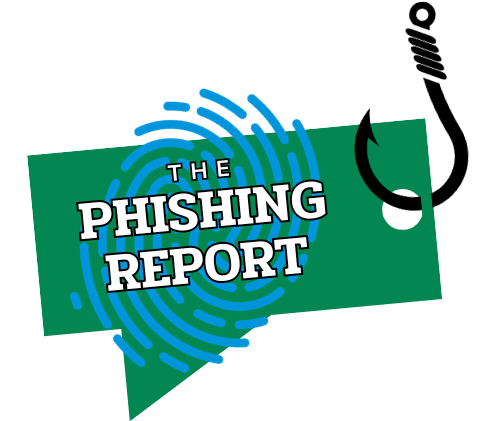Have you ever wondered what truly sets apart businesses with rock-solid data security measures?
Well, the secret lies in implementing four key strategies that form the foundation of a robust data protection system. These methods not only shield your sensitive information from cyber threats but also ensure continuity and trust in your business operations.
Now, let’s explore these essential strategies that can safeguard your data integrity and keep your business operations running smoothly.
Key Takeaways
- Implement robust backup and recovery systems for data protection.
- Utilize strong encryption practices to secure sensitive information.
- Conduct regular security audits and assessments to identify vulnerabilities.
- Implement comprehensive disaster recovery plans for operational continuity.
Data Backup and Recovery Essentials
When safeguarding your business data, implementing a robust backup and recovery system is essential to ensure continuity and protection against potential data loss. Disaster recovery strategies play a crucial role in mitigating the impact of unforeseen events on your data. By having a well-thought-out plan in place, you can minimize downtime and maintain business operations even in the face of disasters.
Data retention policies are another critical aspect of your backup and recovery strategy. Establishing clear guidelines on how long different types of data should be retained ensures compliance with regulations and optimizes storage resources. By defining retention periods based on the value and sensitivity of the data, you can effectively manage your storage infrastructure while meeting legal requirements.
Regularly testing your backup and recovery processes is key to ensuring their reliability. Conducting drills and simulations help identify any weaknesses in your system and allows for necessary adjustments to be made proactively. Additionally, maintaining off-site backups further enhances your disaster recovery capabilities by providing redundancy in case of on-site failures.
Incorporating these elements into your data backup and recovery strategy creates a comprehensive framework that safeguards your business data against potential threats. By focusing on disaster recovery and data retention, you can establish a resilient system that protects your valuable information and promotes business continuity.
Implementing Data Encryption Protocols
To fortify the security of your business data and enhance protection measures, implementing data encryption protocols is imperative to safeguard sensitive information from unauthorized access or breaches. When it comes to securing sensitive information, encryption plays a crucial role in preventing data leaks and maintaining confidentiality. Here are four key strategies to consider:
- Implementing Key Management: Proper key management is essential for effective data encryption. This involves securely generating, storing, and distributing encryption keys to authorized personnel only. Regularly updating and rotating keys adds an extra layer of security to your encrypted data.
- Utilizing Strong Encryption Algorithms: Selecting robust encryption algorithms such as AES (Advanced Encryption Standard) can significantly enhance the security of your data. Ensure that the encryption algorithms used are compliant with industry standards and best practices.
- Enforcing Access Controls: Alongside encryption, implementing strict access controls is vital. Limiting access to encrypted data based on roles and responsibilities helps prevent unauthorized users from gaining entry to sensitive information.
- Monitoring and Auditing Encryption Practices: Regularly monitoring and auditing your encryption practices is crucial to identify any vulnerabilities or gaps in security. Conducting audits ensures that encryption protocols are consistently applied and updated to address emerging threats.
Regular Data Security Audits
Regularly conducting data security audits is essential for evaluating the effectiveness of your encryption protocols and identifying any vulnerabilities in your data protection measures. These audits involve comprehensive vulnerability assessments and penetration testing to proactively uncover any weaknesses in your security infrastructure. By engaging in regular audits, you can stay ahead of potential threats and ensure that your business data remains secure.
Employee training and awareness programs play a crucial role in the success of data security audits. Educating your staff on best practices for data protection and ensuring they understand the importance of security protocols can significantly enhance the overall effectiveness of your audits. Employees are often the first line of defense against cyber threats, so their knowledge and vigilance are key components of a robust data security strategy.
During these audits, it’s vital to assess not only the technical aspects of your security measures but also the human element. By evaluating how well your employees adhere to security protocols and identifying any gaps in their understanding, you can strengthen your overall data protection strategy. Regular data security audits, coupled with employee training initiatives, form a comprehensive approach to safeguarding your business data from potential breaches.
Cloud-Based Data Storage Solutions
Evaluate the security implications of migrating your data to cloud-based storage solutions as part of strengthening your business data safety strategies. Cloud-based data storage offers numerous benefits, but it’s crucial to consider security aspects before making the transition. Here are some key points to consider:
- Data Access Control: Implement robust access control mechanisms to ensure that only authorized personnel can view, edit, or delete sensitive data stored in the cloud. Utilize encryption and multi-factor authentication to enhance security.
- Disaster Recovery Strategies: Develop comprehensive disaster recovery plans to mitigate the risks of data loss in case of unforeseen events. Regularly back up your data to the cloud and test the recovery process to ensure operational continuity.
- Regular Security Audits: Conduct frequent security audits to identify vulnerabilities in your cloud storage environment. Address any issues promptly to prevent potential breaches and data leaks.
- Provider Reputation: Choose a reputable cloud storage provider with a proven track record of data security and compliance. Research their security measures, certifications, and data protection policies before entrusting them with your business data.
Frequently Asked Questions
What Are the Common Challenges Businesses Face When Implementing Data Encryption Protocols?
When implementing data encryption protocols, you may encounter common challenges like key management complexity and performance impacts. Implementation pitfalls often include inadequate training for staff and compatibility issues with existing systems.
Ensure a smooth process by conducting thorough assessments, planning for scalability, and regularly updating protocols. Overcome these challenges by fostering a culture of data security awareness and employing robust encryption solutions tailored to your business needs.
How Often Should Businesses Conduct Data Security Audits to Ensure Robust Protection of Their Business Data?
You should conduct regular audits to ensure data security. By scheduling quarterly audits, you can proactively identify vulnerabilities and prevent potential data breaches.
For example, a leading tech company avoided a major breach by conducting monthly security audits. By staying vigilant and assessing your systems frequently, you can stay ahead of threats and safeguard your business data effectively.
Regular audits are key to robust data protection and peace of mind.
What Are the Key Differences Between On-Premise and Cloud-Based Data Storage Solutions in Terms of Data Safety?
When choosing between on-premise and cloud-based data storage solutions for your business, consider key differences in security measures. On-premise offers more control over data security but requires higher maintenance costs.
Cloud-based solutions provide scalability and disaster recovery options, but data breaches are a concern due to external access. Compliance requirements differ, impacting data safety strategies.
Assess these aspects carefully to ensure robust protection for your business data.
How Can Businesses Ensure the Security and Privacy of Their Data When Outsourcing Data Storage to Third-Party Cloud Providers?
When outsourcing data storage, ensure security and privacy by implementing robust access control measures. Limiting who can view or modify data is like having a secure gate around your information.
Additionally, encrypt all sensitive data before storing it in the cloud. This is akin to locking your data in a secure vault, making it unreadable to unauthorized users.
Access control and data encryption are key steps in safeguarding your business data when using third-party cloud providers.
What Are the Potential Risks Associated With Relying Solely on Data Backup and Recovery Essentials for Business Data Protection?
When relying solely on data backup and recovery essentials, you face significant risks like inadequate data breach prevention and cybersecurity measures. Without comprehensive disaster recovery plans and robust data loss prevention strategies, your business data remains vulnerable to cyber threats.
It’s crucial to implement a multi-layered approach that includes proactive cybersecurity measures to safeguard your data effectively. Balancing backup solutions with advanced security protocols is key to mitigating potential risks and ensuring data safety.
Final Thoughts
Safeguarding your business data is like building a sturdy fortress to protect your most valuable assets. By implementing robust data backup and recovery protocols, encryption measures, security audits, and utilizing cloud-based storage solutions, you’re fortifying your defenses against potential threats.
Stay vigilant, stay proactive, and keep your data safe from harm. Remember, in the world of business, data is power – so protect it like a precious gem.

